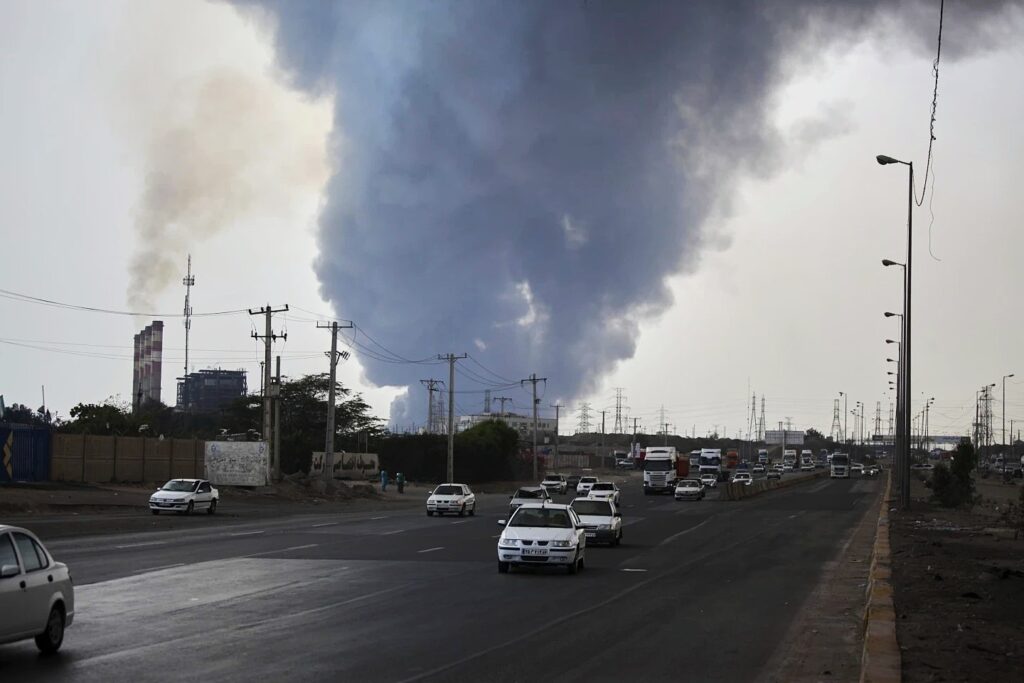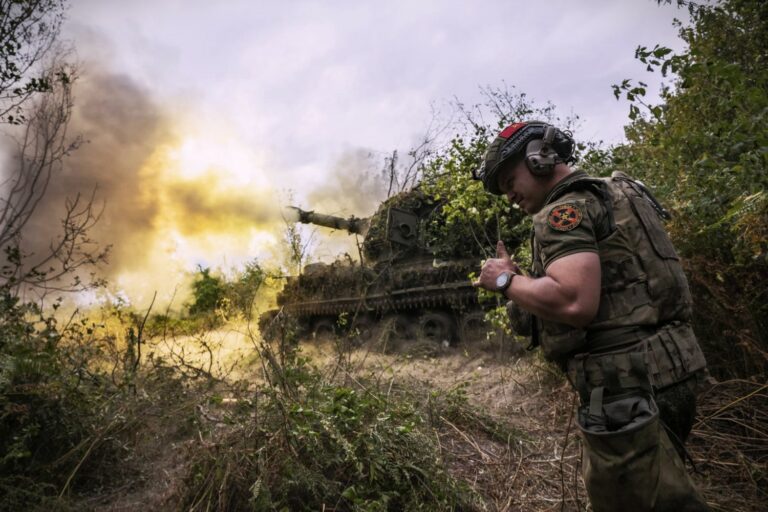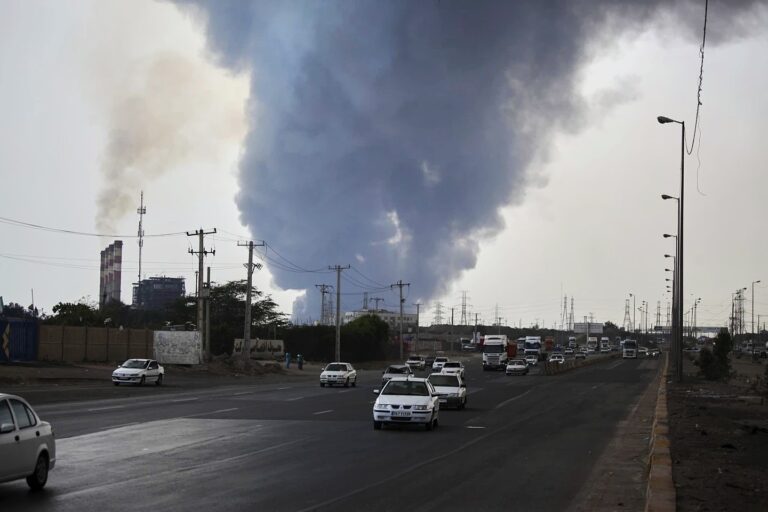
A massive explosion rocked an Iranian port city earlier today, causing widespread devastation, killing at least four people, and injuring more than 500 others. Officials confirmed that the blast was tied to a shipment of missile fuel, intensifying concerns both domestically and internationally about safety protocols at sensitive military sites.
What Happened?
The explosion occurred at a storage facility near Bandar Abbas, one of Iran’s key southern ports on the Persian Gulf. Witnesses reported a deafening blast that shattered windows miles away and sent thick plumes of smoke towering into the sky.
Emergency services rushed to the scene as chaos unfolded. Hospitals in the region were quickly overwhelmed with patients suffering from burns, fractures, and smoke inhalation. Iranian state media described the scene as “catastrophic,” noting that first responders worked through the night to search for survivors trapped beneath collapsed structures.
Missile Fuel at the Center of the Blast
Preliminary reports suggest that the explosion was triggered by improper storage or handling of highly volatile missile fuel materials. Officials acknowledged that hazardous substances linked to Iran’s missile program were present at the site.
Authorities have launched a full investigation to determine whether human error, technical failure, or external sabotage was to blame. Some analysts have pointed out that Iran’s missile facilities have been the target of mysterious accidents in the past, although no evidence of foul play has yet been confirmed in this incident.
Casualties and Damage
- Confirmed Dead: 4
- Injured: Over 500
- Property Damage: Significant damage to surrounding warehouses, administrative buildings, and nearby homes.
- Evacuations: Several thousand residents were ordered to evacuate parts of the port area as a precaution against further explosions or toxic exposure.
Local authorities have urged residents to stay indoors and keep windows closed due to concerns over potential chemical contamination in the air.
International Reaction
The explosion has drawn international attention, with several countries expressing concern over the storage and management of sensitive military materials so close to civilian areas. Human rights organizations have also called for transparency in the investigation, citing fears that the full extent of the damage and casualties could be underreported.
Meanwhile, regional tensions remain high, as some neighboring countries have demanded more information about the nature of the missile fuel shipment and whether it posed a broader security risk.
A Growing Pattern?
This incident is the latest in a series of accidents involving military and industrial facilities in Iran over the past few years. In many cases, explosions at sensitive sites have raised questions about Iran’s internal safety standards, external sabotage operations, and the risks posed by its military infrastructure.
As investigators sift through the rubble, grieving families, injured survivors, and an uneasy nation are left wondering how such a devastating accident could have occurred — and whether more could have been done to prevent it.




